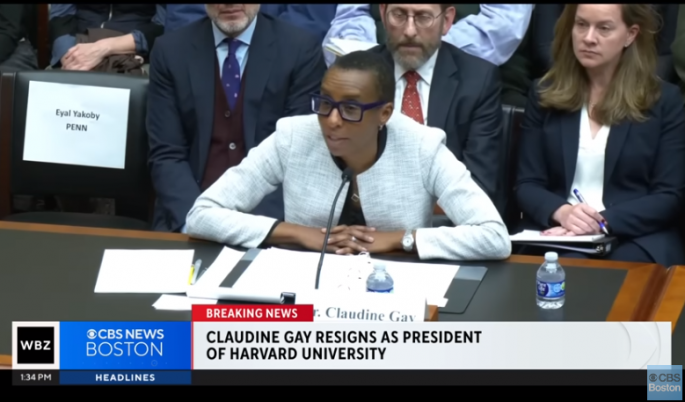Harvard University President Claudine Gay has announced her resignation, marking a tumultuous end to one of the shortest tenures in the institution's storied history. This move comes amidst swirling controversies of plagiarism allegations and contentious congressional testimonies regarding campus antisemitism.
Gay, who broke barriers as Harvard's first Black president, has faced increasing scrutiny following her recent congressional hearing. During the session, which aimed to address the rising concerns of antisemitism on college campuses, Gay's reluctance to unequivocally condemn calls for the genocide of Jewish students sparked outrage across political and academic spectrums. This controversy was further inflamed by subsequent plagiarism accusations concerning her academic work, including her 1997 doctoral dissertation.
In her heartfelt resignation letter, Gay expressed her deep-seated commitment to Harvard and its principles. "It has been distressing to have doubt cast on my commitments to confronting hate and to upholding scholarly rigor - two bedrock values that are fundamental to who I am - and frightening to be subjected to personal attacks and threats fueled by racial animus," Gay stated.
She emphasized her desire for Harvard to move forward, focusing on the institution rather than any individual, acknowledging the shadow cast by these allegations over her brief presidency.
The Harvard Corporation, the university's governing body, expressed its sorrow over accepting Gay's resignation. In their statement, they commended her resilience in the face of personal and racially charged attacks and condemned the "repugnant and in some cases racist vitriol" directed at her. Alan M. Garber, the university's provost and chief academic officer, has been appointed as the interim president as the search for a new leader commences.
This upheaval at Harvard reflects broader tensions within the academic community and society at large. The controversy surrounding Gay's testimony mirrors the heated debates over free speech and the protection of minority students on college campuses. Moreover, her resignation underscores the delicate balance leaders must maintain between academic integrity and navigating the complex, often polarized, landscape of modern academia.
As Harvard turns a new chapter, the academic world watches closely. The institution's next steps will undoubtedly shape not only its future but also offer insights into the evolving challenges and responsibilities facing educational leaders in these divided times.



























